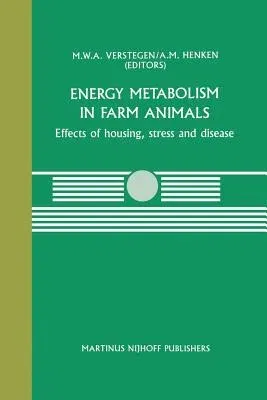Energy Metabolism in Farm Animals: Effects of Housing, Stress and Disease (Softcover Reprint of the Original 1st 1987)Paperback - Softcover Reprint of the Original 1st 1987, 20 September 2011

Qty
1
Turbo
Ships in 2 - 3 days
In Stock
Free Delivery
Cash on Delivery
15 Days
Free Returns
Secure Checkout

Part of Series
Current Topics in Veterinary Medicine
Print Length
501 pages
Language
English
Publisher
Springer
Date Published
20 Sep 2011
ISBN-10
9401080100
ISBN-13
9789401080101
Description
Product Details
Book Edition:
Softcover Reprint of the Original 1st 1987
Book Format:
Paperback
Country of Origin:
NL
Date Published:
20 September 2011
Dimensions:
23.39 x
15.6 x
2.67 cm
Genre:
Ecology
ISBN-10:
9401080100
ISBN-13:
9789401080101
Language:
English
Location:
Dordrecht
Pages:
501
Publisher:
Weight:
721.21 gm